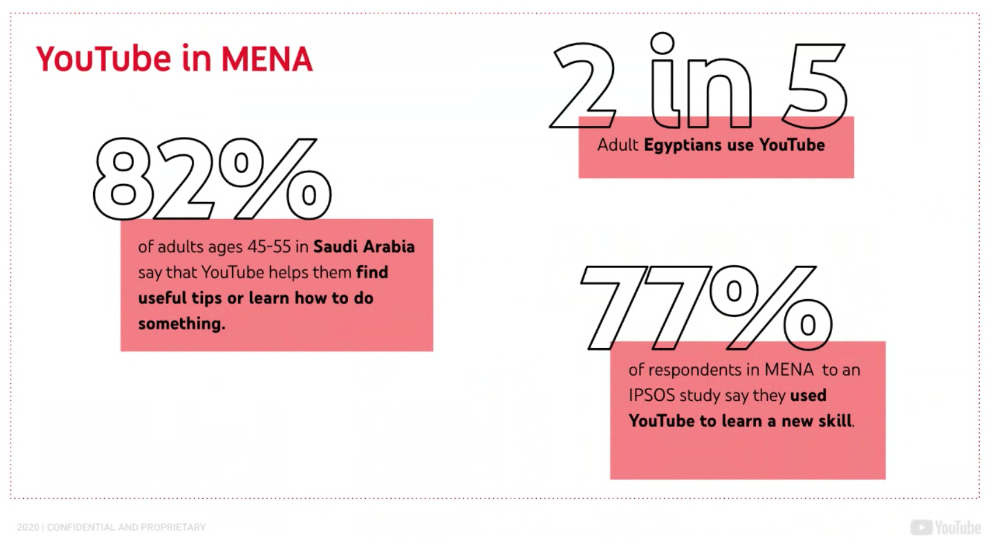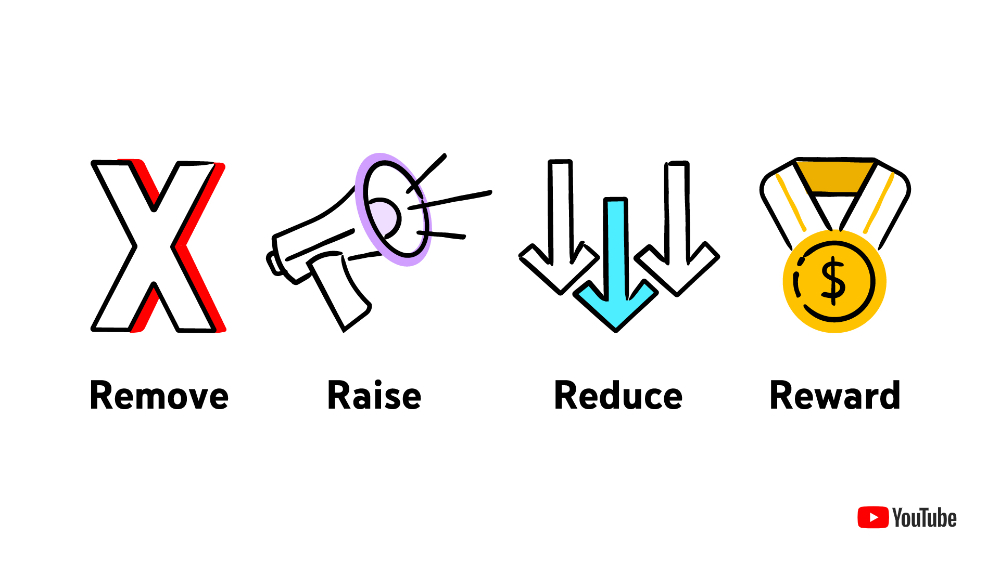DUBAI: YouTube reaffirmed its commitment to creators and users in the Middle East and North Africa region during a virtual event this week.
“With over 500 hours of content uploaded to YouTube every minute, creators around the world are able to share their voices and stories with the 2 billion monthly users that are on YouTube. And that’s no different in MENA,” said Tarek Amin, the head of YouTube MENA, who led the event.

Citing a host of statistics to illustrate the importance to YouTube of content creators in the region, he said two in five Egyptians use YouTube; more 80 percent of adults surveyed in Saudi Arabia agreed that they find useful tips on YouTube that help them learn new things; and 77 percent of people in MENA have used YouTube to learn a new skill.
Amin said that “content creators are the heart of YouTube” and the platform is committed to supporting the creative economy in the region. The efforts it is making to do this are evident in the results, he said: As of June 2021, channels making six figures or more in local-currency revenues increased by 40 percent year-on-year in the UAE and 20 percent in Saudi Arabia.
“With our commitment to users and creators comes our responsibility, which is integral to our mission,” he added.
The top priority of management, he said, is protecting the YouTube community by focusing on the “four Rs:” removing content that violates the rules; raising authoritative content; rewarding trusted, eligible creators; and reducing the spread of borderline content.

YouTube uses a combination of automated systems and thousands of human reviewers to identify and remove content that breaks its rules. Machine-learning systems help to find and review content at scale, while human reviewers make context-based decisions, Amin said.
Between September and December 2021, 92 percent of videos that were removed were first identified by automated systems. Of these, 74 percent had fewer than 10 views and 32 percent had no views at all.
“This shows that our machine-learning classifiers were able to take action against violative videos before their impact was felt on YouTube,” said Amin.
FAST FACTS
• 2 in 5 Egyptians use YouTube.
• More than 80 percent of adults surveyed in Saudi Arabia agreed that the found useful tips on YouTube that helped them learn new things.
• 77 percent of people polled in MENA have used YouTube to learn a new skill.
• Between September and December 2021, 92 percent of videos that were removed were identified by YouTube’s automated systems.
For topics such as news, science and historical events, he added, “accuracy and authoritativeness are key,” which is why the platform is prioritizing not only the quality of information but also adding context. For example, when someone searches for topics related to COVID-19, YouTube provides additional context through information panels linking to information from the World Health Organization.
When it comes to “borderline content,” which YouTube defines as content that pushed the boundaries of what is acceptable but does not violate community guidelines, the platform enlists the help of external evaluators. Each video evaluated in this way receives up to nine varying opinions, with some subjects requiring certified experts.
“The results are then combined to give a score for how likely it is the video contains harmful misinformation or is borderline,” Amin said. “Any video classified as borderline is demoted in recommendations.”
YouTube’s policies are developed with input from a wide range of experts. The policies apply to advertisers as much as users and the platform can revoke the ability to run adverts on YouTube if they fail to comply with the policies.
“Protecting our community on our platform will remain our utmost priority,” Amin said. “This is why we’ll continue to invest in systems to ensure better enforcement of the 4 Rs.
“We’ll also continue to adapt our policies to meet the internet’s evolving nature and people’s expectations and to ensure they’re effective in the face of new developments.”


























